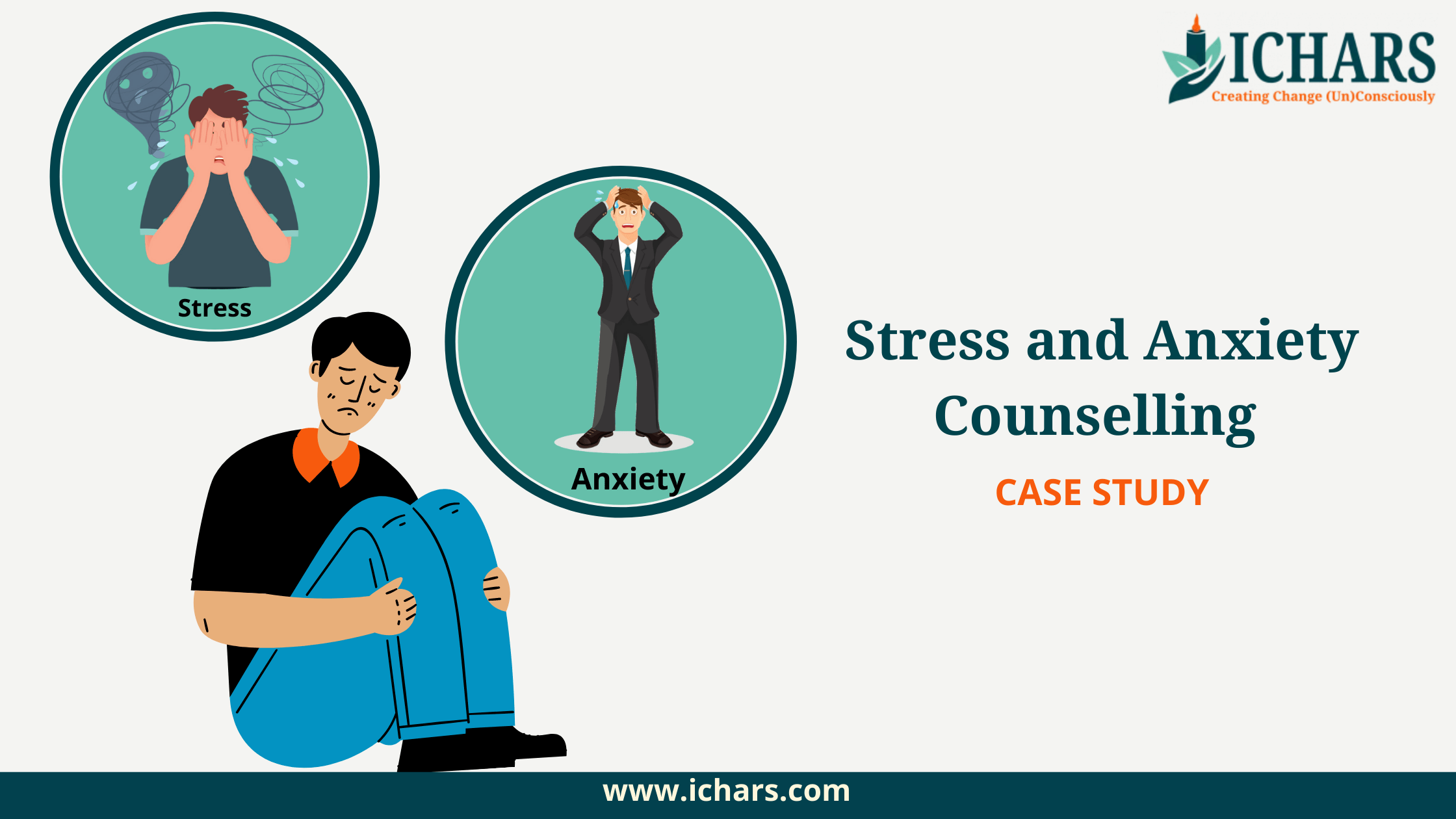Discovering Various Methods in Counselling for Stress And Anxiety Condition for Long-term Adjustment
When tackling anxiety disorders, it's vital to explore a range of counseling techniques. Each method uses one-of-a-kind understandings and devices to assist you manage your symptoms effectively. You might discover that integrating methods can generate the best outcomes. However, recognizing the subtleties of these approaches is key to fostering long-term adjustment. What happens if the appropriate mix could launch a new level of psychological health for you?
Comprehending Anxiousness Disorders: A Short Review
Anxiety conditions, which affect numerous people worldwide, can substantially affect every day life. You may experience frustrating feelings of concern or stress that seem unmanageable. These feelings can lead to physical signs like an auto racing heart, sweating, or perhaps lightheadedness. Common kinds of stress and anxiety disorders consist of generalized anxiousness disorder, panic disorder, and social stress and anxiety disorder. Each has one-of-a-kind indications, however they all share a tendency to disrupt your routine and relationships.Understanding the origin causes of your anxiousness is crucial. It might originate from genetics, mind chemistry, or life experiences. Acknowledging your triggers can help you handle your reactions better. It is essential to keep in mind that you're not the only one in this battle. Lots of people deal with comparable challenges, and looking for help is a strong action toward sensation better. By discovering stress and anxiety disorders, you're already on the path to understanding and handling your condition better.
Cognitive-Behavioral Therapy: Testing Negative Idea Patterns
In Cognitive-Behavioral Therapy, you'll begin by recognizing the unfavorable idea activates that add to your anxiety. You'll function on replacing them with even more positive alternatives when you identify these ideas. Together, you'll construct reliable coping strategies to assist manage your stress and anxiety in daily situations.
Recognizing Adverse Idea Triggers

When you encounter moments of distress, recognizing the specific triggers behind your negative thoughts can be important in handling stress and anxiety. Begin by taking note of circumstances that provoke sensations of worry or anxiety. Is it a crowded area, an approaching target date, or a conversation with certain people? Write down these circumstances in a journal. This will certainly assist you determine patterns in your reasoning. Likewise, notice physical feelings that accompany your unfavorable thoughts, like an auto racing heart or tightness in your chest. By pinpointing these triggers, you gain understanding into what's fueling your anxiousness. Comprehending these links is the initial step in testing those ideas and eventually restoring control over your psychological feedbacks.
Changing Ideas With Positives
Challenging unfavorable idea patterns is a vital action in transforming your frame of mind and minimizing anxiety. You might typically find yourself caught in cycles of insecurity or devastating reasoning. Rather of allowing these ideas dictate your feelings, practice changing them with sensible choices or favorable affirmations. When you assume, "I can't handle this," shift it to, "I can take care of challenges one step at a time." This basic change can significantly affect your emotion. Routinely determining and countering these negative thoughts helps create a healthier internal discussion. Bear in mind, it requires time and initiative, yet consistently exercising this method can bring about lasting adjustment, equipping you to encounter stress and anxiety with renewed self-confidence and strength.
Structure Coping Techniques Together
Changing adverse ideas is only the start of taking care of stress and anxiety successfully. To develop lasting adjustment, you require to develop coping techniques that encourage you. Cognitive-Behavioral Therapy (CBT) helps you identify and test those unhelpful idea patterns. With each other, you and your counselor can check out how these ideas effect your feelings and behaviors.Start by developing sensible techniques, like journaling or mindfulness workouts, that enable you to confront anxiety head-on. When you encounter your concerns progressively, you'll discover to respond differently.

Mindfulness and Acceptance-Based Approaches: Cultivating Present-Moment Awareness
As you navigate the complexities of anxiousness, including mindfulness and acceptance-based approaches can substantially enhance your ability to cultivate present-moment understanding. By concentrating on the here and now, you'll discover that you can observe your ideas and feelings without judgment (Counseling services for anxiety). This method assists you acknowledge your anxiety without really feeling bewildered by it.Engaging in mindfulness exercises, such as deep breathing, body scans, or assisted reflections, allows you to ground yourself in your current experience. Acceptance-based strategies motivate you to accept your feelings as opposed to combat against them. They lose their power over you.Incorporating these techniques right into your day-to-day regimen can transform how you respond to stress and anxiety when you approve your sensations. You'll create resilience and learn to navigate difficult circumstances with higher convenience. Ultimately, cultivating present-moment understanding lays the structure for lasting adjustment, empowering you to lead an extra meeting life
Direct Exposure Treatment: Confronting Worries Gradually
Direct exposure therapy assists you challenge your fears in a progressive method, making it much less frustrating. You'll discover strategies to deal with anxiety-provoking situations detailed, while also building coping approaches to handle your responses. This technique equips you to take control and decrease stress and anxiety gradually.
Progressive Exposure Methods

When facing anxiety, slowly challenging your anxieties can be an effective way to reclaim control. This method, recognized as progressive direct exposure, includes slowly subjecting yourself to the circumstances or objects that cause your stress and anxiety. Start with much less challenging scenarios and gradually work your means up to more difficult ones. If you're terrified of public speaking, you could begin by talking in front of a mirror, then proceed to sharing thoughts with a close friend, and at some point attend to a little group. Each action assists desensitize you to the anxiety, building your self-confidence with time. Keep in mind, it's important to rate yourself and commemorate tiny victories as you move through this procedure, strengthening your capability to handle stress and anxiety efficiently.
Building Coping Approaches
Structure reliable coping methods is important for handling stress and anxiety, especially as you confront your worries slowly - Counseling services for anxiety. One powerful technique is exposure therapy, where you start by facing your worries in a regulated manner. Begin with much less intimidating situations and slowly work your way as much as even more tough scenarios. This progressive direct exposure assists desensitize you to anxiousness sets off, making them much less overwhelming.Incorporate leisure methods, such as deep breathing or mindfulness, to calm your mind throughout exposure. Track your progress, commemorating little victories along the means to increase your confidence. Bear in mind, it's okay to take your time; the objective isn't perfection but stable enhancement. By constructing these approaches, you'll encourage on your own to navigate anxiety and accept life much more totally
Psychodynamic Therapy: Discovering Source of Stress And Anxiety
Psychodynamic therapy discovers the unconscious mind, revealing the origin of your stress and anxiety. By examining your ideas, feelings, and past experiences, this approach helps you discover underlying conflicts and unsolved problems that might contribute to your present anxiety. You'll deal with a therapist to explore childhood years experiences, relationships, and emotional patterns that form your reactions today.As you gain understanding into these much deeper layers of your psyche, you'll begin to acknowledge just how past events influence your existing behavior. This understanding can bring about catharsis, enabling you to refine emotions you may have suppressed.Through the restorative connection, you can also determine defense reaction that may have established in time, supplying a clearer path to change. Inevitably, psychodynamic therapy furnishes you with the devices to address your stress and anxiety at its core, promoting long-term improvement in your emotional health.
Alternative and integrative Strategies: Combining Methods for Greater Efficiency
Integrating different healing techniques can improve your trip toward handling stress and anxiety more successfully. By incorporating elements from cognitive-behavioral treatment, mindfulness techniques, and holistic methods, you can develop a customized strategy that addresses your unique demands. For example, you could use cognitive-behavioral methods to test negative thought patterns while including mindfulness exercises to ground on your own in the here and now moment.Additionally, exploring alternative techniques such as yoga exercise or reflection can advertise leisure and reduce anxiety symptoms. This mix permits you to establish higher self-awareness and resilience.Experimenting with these diverse techniques can assist you discover what reverberates most with you. Keep in mind, it has to do with finding a synergy that works, instead than sticking to a solitary approach. This integrative method not just uses prompt relief yet also promotes long-term abilities for handling anxiety, encouraging you to reclaim control over your life.
The Role of Support Solutions: Structure Resilience Through Connection
While it could seem that handling anxiety is a solitary trip, having a strong assistance system can play a vital duty in your resilience. Surrounding yourself with compassionate buddies, family members, or assistance teams develops a risk-free space where you can openly share your feelings and experiences. You advise yourself that you're not alone in this struggle.These partnerships use support and can offer practical coping approaches that have worked for others when you attach with others. It's likewise an opportunity to acquire perspective; buddies can aid you see situations in different ways, minimizing feelings of isolation.Moreover, psychological support fosters a feeling of belonging, which can significantly reduce anxiety more info signs. By leaning on your support group, you can build durability and take on challenges better. Keep in mind, connecting for help signifies toughness, and it can make all the difference in your journey towards taking care of anxiety.
Frequently Asked Inquiries
What Are the Usual Signs of Stress And Anxiety Disorders?
You could experience restlessness, fatigue, trouble concentrating, impatience, muscle mass stress, and rest disruptions. Physical signs and symptoms can include rapid heartbeat, sweating, and trembling. Recognizing these signs early can help you seek appropriate support and treatment.
The Length Of Time Does Therapy Commonly Last for Anxiety Disorders?
Therapy for stress and anxiety disorders normally lasts anywhere from a few weeks to several months. It truly depends upon your private requirements, progression, and the methods your therapist makes use of to help you handle your anxiousness successfully.
Can Medicine Be Utilized Together With Treatment for Anxiousness?
Yes, drug can absolutely be utilized together with therapy for stress and anxiety. Incorporating both strategies often enhances therapy performance, aiding you take care of signs and symptoms while discovering underlying concerns through counseling (Counseling services for anxiety). Always consult your doctor for individualized advice
Are There Self-Help Methods for Taking Care Of Anxiousness?
Yes, there are several self-help techniques for handling anxiousness. You can practice mindfulness, participate in regular exercise, maintain a well balanced diet regimen, develop a regular, and use deep breathing techniques to help minimize stress and anxiety signs and symptoms effectively.
Just how Do I Know if I Required Professional Assistance for Anxiousness?
